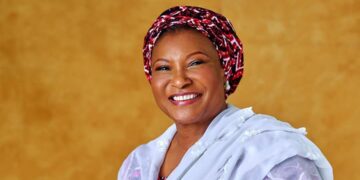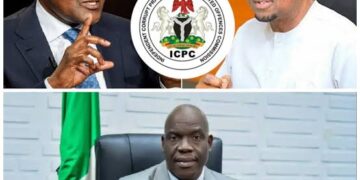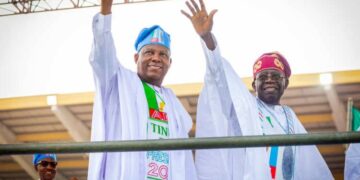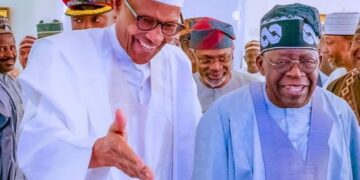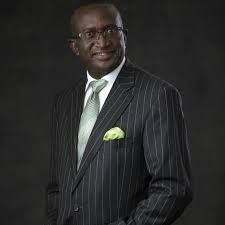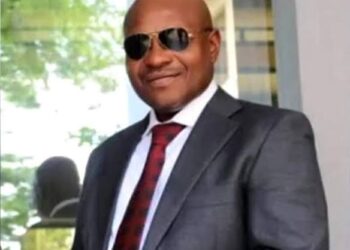In a revealing conversation on the inaugural episode of the podcast The Exchange, hosted by Femi Soneye, former Senate Leader Victor Ndoma-Egba, SAN, offered a poignant reflection on Nigeria’s evolution from a nation of immense promise to one grappling with deep institutional decay.
The renowned lawyer and public servant, who turns 70 in five months, traced Nigeria’s journey from the hopeful dawn of independence to its current struggles, lamenting that the country “lost its way” by abandoning the values and plans that once defined it.
“In 1960, our economy was one of the fastest growing in the world. The problem then was not money, but how to spend it,” he recalled.
Ndoma-Egba, who entered public service at 24 and became a state commissioner at 26, contrasted the modest, purposeful governance of the past with today’s bloated bureaucracy. In the 1980s, he said, states ran efficiently with just seven to nine commissioners.
“It was a deliberate effort to cut costs,” he explained. “But austerity also came with its challenges. I was responsible for what today would be more than a dozen ministries.”
He questioned whether the current debate on the cost of governance adequately balances efficiency with frugality, arguing that reducing numbers without improving systems only “changes the optics, not the outcome.”
A Cultural Decline
For Ndoma-Egba, Nigeria’s real crisis is not structural but cultural — a society too deferential to authority and unwilling to hold leaders accountable. He drew a sharp contrast between the humility of the country’s founding fathers and the ostentation of modern politicians.
“Tafawa Balewa lived in a mud house,” he said. “My mother was a local government chairman who walked to work without an official car or residence. It’s the environment that defines today’s leadership.”
The NDDC and Abandoned Vision
Recalling his tenure as Chairman of the Niger Delta Development Commission (NDDC), Ndoma-Egba lamented that a carefully developed master plan for the region was “abandoned almost immediately” due to political expediency.
He revealed that payments at the Commission went through a staggering 62-step bureaucratic process that encouraged inefficiency and corruption.
“The NDDC became, to many, a share of the national cake,” he said, adding that attempts to reform the system were violently resisted — including one investigation into contractors that was disrupted by thugs.
Legislative Misunderstanding and Public Distrust
As the first chairman of the Senate Committee on Media and Public Affairs, Ndoma-Egba reflected on the National Assembly’s fraught relationship with the Nigerian public. He linked public impatience with the legislature to decades of military rule, which conditioned citizens to see the institution as expendable.
Citing the 1999 “furniture allowance” saga, he clarified that legislators had, in fact, rejected a higher ₦12 million estimate in favour of ₦3 million — a nuance lost in the public outrage that followed.
“The institution has always struggled with perception,” he said. “It’s one of the legacies of authoritarian rule.”
A Bright Spot in Education
On a more positive note, Ndoma-Egba spoke proudly of his role as Pro-Chancellor of the Federal University Oye-Ekiti (FUOYE), which he described as a “phenomenal success story.”
He noted that the 14-year-old university now boasts 60,000 students—double that of the 50-year-old University of Calabar—and consistently ranks as the fourth most sought-after university in Nigeria.
“We have a stable academic calendar, a great host community, and a vice chancellor with tremendous energy,” he said.
Youth, Opportunity, and the Future
Turning to Nigeria’s vast youth population, Ndoma-Egba described it as “ordinarily an asset” that could easily become “a curse” if not productively engaged.
“Youthfulness is only an advantage when coupled with education, skills, and opportunity,” he cautioned. “An educated person without opportunity is a threat to society.”
He attributed his own rise in public service to the opportunities he received early in life, emphasizing the need for deliberate empowerment of young Nigerians.
Reflections on Cross River and a Personal Note
Discussing his home state, Cross River, Ndoma-Egba admitted he does “not envy the governor,” describing the post-Donald Duke and Liyel Imoke era as one of “experimentation” that failed to deliver results.
“Those experiments haven’t worked,” he said, urging the current administration to “return governance to traditional forms and proven systems.”
The interview ended on a personal note, with the Senior Advocate revealing that he once aspired to become a Catholic priest, and that he eats pounded yam every single day whenever he is in Nigeria — a glimpse into the private life of a man whose public journey has spanned law, politics, and service.
“My deepest wish,” he concluded, “is for my grandchildren to live in a secure and prosperous Nigeria — the kind of country we once knew, and must now rebuild.”

